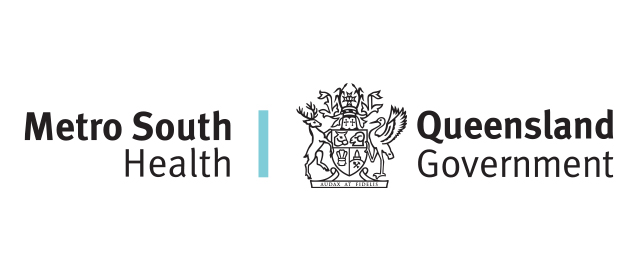
OPTMED-D focuses on reducing avoidable medication-related hospital readmissions by optimising medicine information handover during transition of care. This study is funded by the Medical Research Future Fund.
Participating sites: Gold Coast University Hospital, Robina Hospital, Princess Alexandra Hospital, Queen Elizabeth II Jubilee Hospital, Logan Hospital, Redland Hospital, and Beaudesert Hospital.
Study partners
Stakeholders
- Australian Patients Association
- Australian Association of Consultant Pharmacy
- PHN Brisbane South and PHN Gold Coast
- Internal Medicine Society of Australia & New Zealand
- Society of Hospital Pharmacists of Australia
Background
Medication-related harm is a significant public health issue and is an Australian National Health Priority, with the post-hospital discharge period particularly high-risk. When a patient is discharged from hospital, it is essential that their GP and community pharmacist are informed of changes to their medicines to continue their medicine management in the community. However, the handover of medicine information is inconsistent, and it is not standard practice for hospital clinicians to contact a patient’s community pharmacist or GP upon discharge. The disconnect between different health services in hospital and primary care settings impacts patient safety, leading to hospital readmissions and increased cost to the healthcare system.
We will engage stakeholders and end-users to co-design a multifaceted intervention that will follow the patient’s transition of care journey, thus placing the patient at the centre of care. Our intervention will leverage existing transition of care strategies (e.g., discharge summaries) whilst introducing targeted innovations: a structured medicine handover process and a digital intervention.
Adjunct Associate Professor Laetitia Hattingh
Laetitia Hattingh's researcher profile
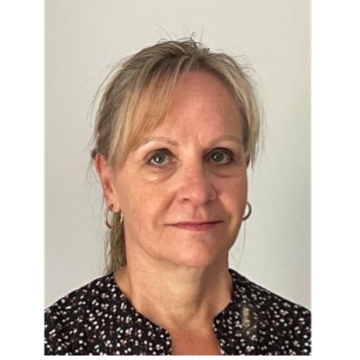 A/Professor Laetitia Hattingh is a research pharmacist with experience in a variety of settings: community and hospital pharmacy, pharmaceutical governance, implementation of medication reviews services (Gold Coast and Tweed Valley Divisions of General Practice) and academia (Griffith and Curtin Universities). In her current role with Gold Coast Health, Hattingh works with clinicians and executives to develop and implement strategies to identify research priority areas and develop research frameworks to evaluate medicine handover at transition of care, new services models and medication safety initiatives.
A/Professor Laetitia Hattingh is a research pharmacist with experience in a variety of settings: community and hospital pharmacy, pharmaceutical governance, implementation of medication reviews services (Gold Coast and Tweed Valley Divisions of General Practice) and academia (Griffith and Curtin Universities). In her current role with Gold Coast Health, Hattingh works with clinicians and executives to develop and implement strategies to identify research priority areas and develop research frameworks to evaluate medicine handover at transition of care, new services models and medication safety initiatives.
Professor Elizabeth Manias
Elizabeth Manias researcher profile
 Professor Elizabeth Manias is a Research Professor at the School of Nursing and Midwifery at Monash University. Her research interests and expertise involve health care communication, patient safety, transitions of care, and risk management. She works with diverse health professionals, including doctors, nurses, pharmacists, and with patients and families, to consider the complexities of how patients and their families can engage in managing medications and facilitating communication between patients and health professionals, as patients move between different settings, such as between hospital and home.
Professor Elizabeth Manias is a Research Professor at the School of Nursing and Midwifery at Monash University. Her research interests and expertise involve health care communication, patient safety, transitions of care, and risk management. She works with diverse health professionals, including doctors, nurses, pharmacists, and with patients and families, to consider the complexities of how patients and their families can engage in managing medications and facilitating communication between patients and health professionals, as patients move between different settings, such as between hospital and home.
Dr Fei Sim
 Dr Fei Sim is a Senior Lecturer in Pharmacy Practice at Curtin University, WA. She is a registered pharmacist with extensive experience in pharmacy practice, academia, industry, and pharmaceutical aged care services. She is the National President and Chair of the Pharmaceutical Society of Australia (PSA) Board. Fei is the current Chair of the Australian Pharmacy Leaders Forum (APLF), an independent coalition of senior decision-makers from national pharmacy organisations who work together on issues of national importance to the pharmacy profession and the public. She was the inaugural Chair of the Contemporary Community Pharmacy Practice (CCPP) Communities of Specialty Interest, which is a forum to support collaboration, innovation and strategic progression of various practice areas in pharmacy. She is a Fellow of the UK Higher Education Academy and a Fellow of the PSA, and a Graduate Member of the Australian Institute of Company Directors. She brings expertise and first-hand experience in community pharmacy-based service implementation and evaluation
Dr Fei Sim is a Senior Lecturer in Pharmacy Practice at Curtin University, WA. She is a registered pharmacist with extensive experience in pharmacy practice, academia, industry, and pharmaceutical aged care services. She is the National President and Chair of the Pharmaceutical Society of Australia (PSA) Board. Fei is the current Chair of the Australian Pharmacy Leaders Forum (APLF), an independent coalition of senior decision-makers from national pharmacy organisations who work together on issues of national importance to the pharmacy profession and the public. She was the inaugural Chair of the Contemporary Community Pharmacy Practice (CCPP) Communities of Specialty Interest, which is a forum to support collaboration, innovation and strategic progression of various practice areas in pharmacy. She is a Fellow of the UK Higher Education Academy and a Fellow of the PSA, and a Graduate Member of the Australian Institute of Company Directors. She brings expertise and first-hand experience in community pharmacy-based service implementation and evaluation
Dr Holly Foot
Holly Foot's researcher profile
 Dr Holly Foot is an early career clinical pharmacy researcher who aims to improve the outcomes of patients and consumers through supporting safe medication use. Dr Foot led the coordination, delivery, and publication of the REMAIN HOME study (under leadership of AI Freeman and CI Scott), the largest evaluation of pharmacists collaborating with GPs to reduce readmission to hospital in Australia, using a stepped wedge, cluster design. In addition, Dr Foot recently completed a role as a Research Fellow at The University of Auckland (New Zealand), where she led the development, coordination and implementation of a community-pharmacy led intervention to reduce reliever reliance in individuals with asthma.
Dr Holly Foot is an early career clinical pharmacy researcher who aims to improve the outcomes of patients and consumers through supporting safe medication use. Dr Foot led the coordination, delivery, and publication of the REMAIN HOME study (under leadership of AI Freeman and CI Scott), the largest evaluation of pharmacists collaborating with GPs to reduce readmission to hospital in Australia, using a stepped wedge, cluster design. In addition, Dr Foot recently completed a role as a Research Fellow at The University of Auckland (New Zealand), where she led the development, coordination and implementation of a community-pharmacy led intervention to reduce reliever reliance in individuals with asthma.
Dr Faith Yong
Faith Yong's researcher profile
 Dr Faith R. Yong is a pharmacist researcher with a keen interest in improving the quality of care in health systems by addressing workforce challenges, professional identity, safety and quality, and organisational conflicts within and between professions. She has taught in universities for the last six years, and has experience in research within general practice, community, hospital pharmacy practice and medical education. Faith’s research interests include theoretically based qualitative and participatory action research to understand and improve healthcare work and practitioner wellbeing from a systems perspective. She is an experienced community pharmacist and co-administrator of the Consultant Pharmacists Australia group.
Dr Faith R. Yong is a pharmacist researcher with a keen interest in improving the quality of care in health systems by addressing workforce challenges, professional identity, safety and quality, and organisational conflicts within and between professions. She has taught in universities for the last six years, and has experience in research within general practice, community, hospital pharmacy practice and medical education. Faith’s research interests include theoretically based qualitative and participatory action research to understand and improve healthcare work and practitioner wellbeing from a systems perspective. She is an experienced community pharmacist and co-administrator of the Consultant Pharmacists Australia group.
Professor Melissa Baysari
Melissa Baysari's researcher profile
 Professor Melissa Baysari (BPsych, PhD, FAIDH) leads the Digital Health Human Factors Research Group at the University of Sydney. Her research seeks to improve healthcare delivery via optimising the fit between healthcare professionals and the technologies they use in practice, with a particular focus on digital health tools to support medication management. Professor Baysari has published widely in the areas of medication safety, decision support systems and technology evaluation and she has secured many research grants and consultancies as a CI, totalling over AUD$12 million. Professor Baysari’s research is highly applied and has led to significant changes to technology design, training programs, and policies.
Professor Melissa Baysari (BPsych, PhD, FAIDH) leads the Digital Health Human Factors Research Group at the University of Sydney. Her research seeks to improve healthcare delivery via optimising the fit between healthcare professionals and the technologies they use in practice, with a particular focus on digital health tools to support medication management. Professor Baysari has published widely in the areas of medication safety, decision support systems and technology evaluation and she has secured many research grants and consultancies as a CI, totalling over AUD$12 million. Professor Baysari’s research is highly applied and has led to significant changes to technology design, training programs, and policies.
Professor Ian Scott
Ian Scott's researcher profile
 Professor Ian Scott has 35 years of experience practising as a general physician, clinical epidemiologist, and health service researcher in a tertiary teaching hospital and as a professor of medicine at UQ. He has participated in clinical trials of advance care planning, deprescribing, and quality use of medications with pharmacists integrated into general practice. Professor Scott established the Australian Deprescribing Network in 2014 which currently comprises more than 400 researchers and clinicians which has led education and policy reform on inappropriate polypharmacy in this country and overseas, with methods being widely adopted in UK, US, Singapore, and China. He is a fellow of the Royal Australasian College of Physicians, member and past president of the Internal Medicine Society of Australia and New Zealand, and founding member of the Australian and New Zealand Affiliate of the Society of Improving Diagnosis in Medicine.
Professor Ian Scott has 35 years of experience practising as a general physician, clinical epidemiologist, and health service researcher in a tertiary teaching hospital and as a professor of medicine at UQ. He has participated in clinical trials of advance care planning, deprescribing, and quality use of medications with pharmacists integrated into general practice. Professor Scott established the Australian Deprescribing Network in 2014 which currently comprises more than 400 researchers and clinicians which has led education and policy reform on inappropriate polypharmacy in this country and overseas, with methods being widely adopted in UK, US, Singapore, and China. He is a fellow of the Royal Australasian College of Physicians, member and past president of the Internal Medicine Society of Australia and New Zealand, and founding member of the Australian and New Zealand Affiliate of the Society of Improving Diagnosis in Medicine.
Professor Gerben Keijzers
Gerben Keijzer's researcher profile
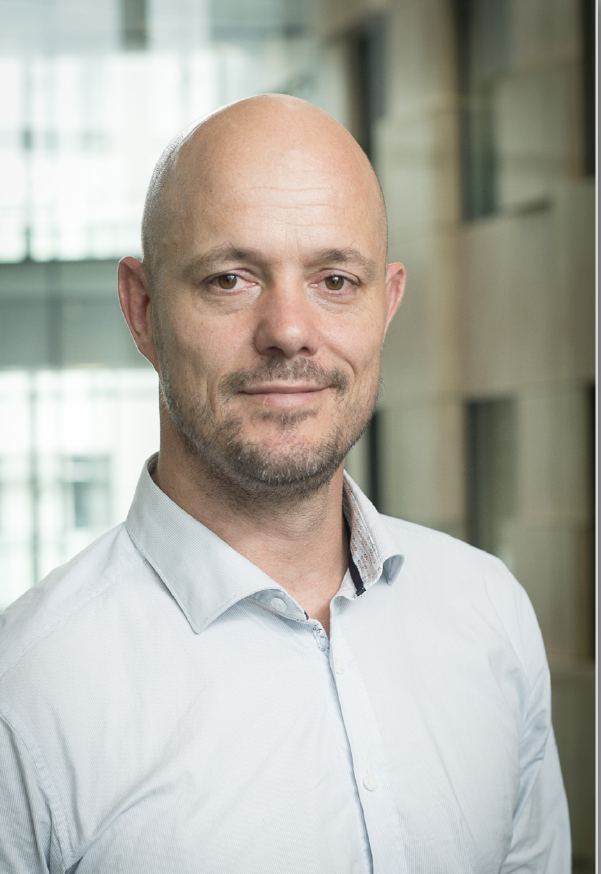 Professor Gerben Keijzers is a senior Staff Specialist in Emergency Medicine and clinician-researcher at Gold Coast Health with a conjoint adjunct Professor position with Bond University. He has leadership roles as part of several collaborative research groups state-wide and nationally (ACEM, EDCRG). Professor Keijzers leads programs of research in areas of appropriate use of resources, sepsis, and respiratory emergencies, with a specific interest in studies where the focus is on the combination of better outcomes for patients, more convenience for staff and less resource requirement for the health system.
Professor Gerben Keijzers is a senior Staff Specialist in Emergency Medicine and clinician-researcher at Gold Coast Health with a conjoint adjunct Professor position with Bond University. He has leadership roles as part of several collaborative research groups state-wide and nationally (ACEM, EDCRG). Professor Keijzers leads programs of research in areas of appropriate use of resources, sepsis, and respiratory emergencies, with a specific interest in studies where the focus is on the combination of better outcomes for patients, more convenience for staff and less resource requirement for the health system.
Professor Claire Jackson
Claire Jackson's researcher profile
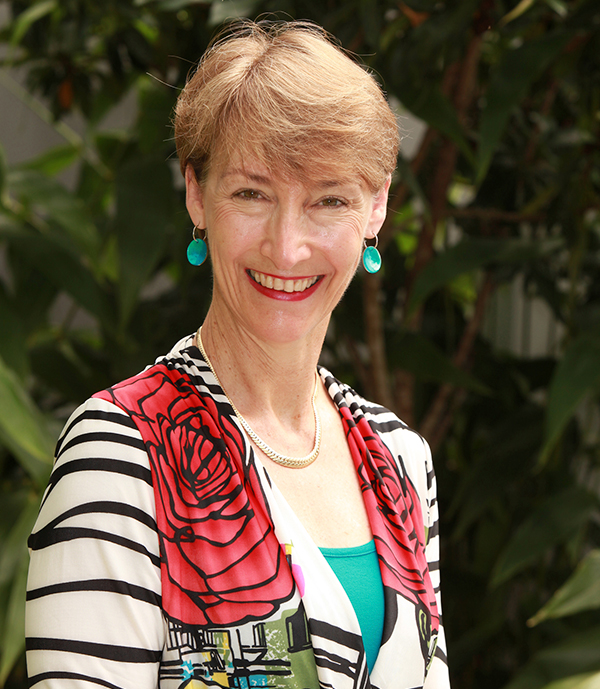 Professor Claire Jackson has been active in integrated care innovation, education and research since the early 90s, and more recently, extensively involved in health services research and reform. She has been a member of all 4 national Primary Health Care Strategy and Reform Reference Groups - guiding forces behind Australia’s National Health Reform Agreements. Her description of the ‘beacon’ practice model, piloted at Inala Primary Care, was adopted as both the clinical prototype for the Australian Association of Academic General Practitioner’s endorsed model for GP Superclinics, and the basis for UQ’s successful $10 million Superclinic tenders. Inala Primary Care won RACGP Qld ‘Practice of the Year’ in 2009.
Professor Claire Jackson has been active in integrated care innovation, education and research since the early 90s, and more recently, extensively involved in health services research and reform. She has been a member of all 4 national Primary Health Care Strategy and Reform Reference Groups - guiding forces behind Australia’s National Health Reform Agreements. Her description of the ‘beacon’ practice model, piloted at Inala Primary Care, was adopted as both the clinical prototype for the Australian Association of Academic General Practitioner’s endorsed model for GP Superclinics, and the basis for UQ’s successful $10 million Superclinic tenders. Inala Primary Care won RACGP Qld ‘Practice of the Year’ in 2009.
Professor Mark Morgan
Mark Morgan's researcher profile
 Professor Mark Morgan has over 20 years of ongoing Australian general practice experience that spans rural, regional, and urban practice. He has held leadership roles at Bond University including Phase Lead for clinical education and Associate Dean for External Engagement. He is a leader within the RACGP as chair of the Expert Committee for Quality Care, holding many representative roles related to national primary care policy. Professor Morgan has a strong international standing in primary care research, policy and clinical guideline development. His international research collaborations have investigated patient safety and primary care microsystems. Quality use of medicines has been the focus of his national research and research-translation activities.
Professor Mark Morgan has over 20 years of ongoing Australian general practice experience that spans rural, regional, and urban practice. He has held leadership roles at Bond University including Phase Lead for clinical education and Associate Dean for External Engagement. He is a leader within the RACGP as chair of the Expert Committee for Quality Care, holding many representative roles related to national primary care policy. Professor Morgan has a strong international standing in primary care research, policy and clinical guideline development. His international research collaborations have investigated patient safety and primary care microsystems. Quality use of medicines has been the focus of his national research and research-translation activities.
Professor Barbara Mullan
Barbara Mullan's researcher profile
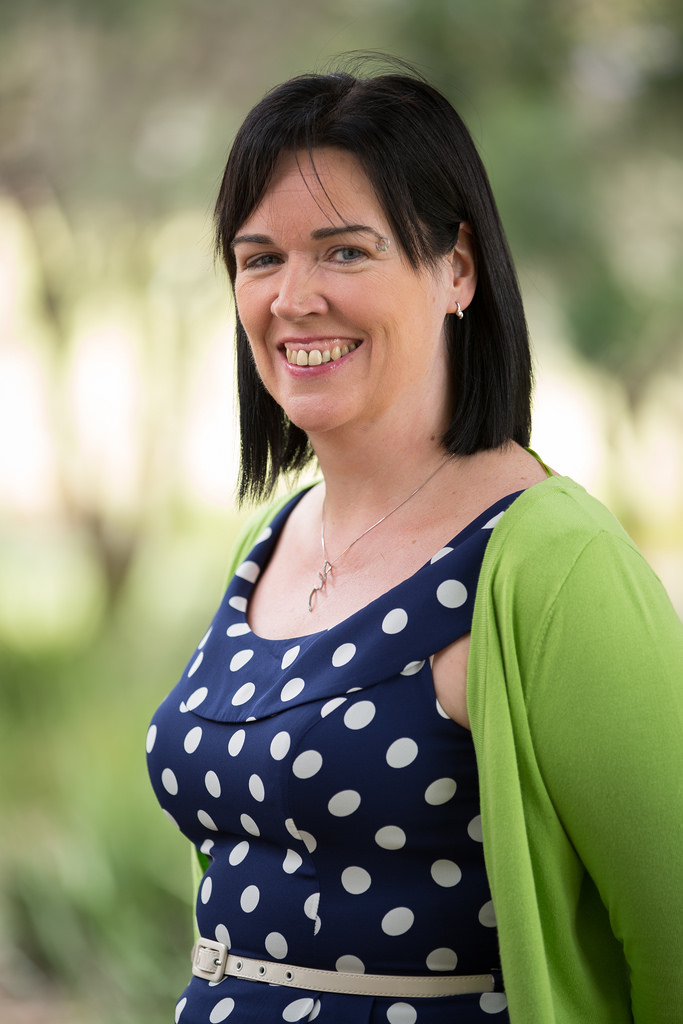 Professor Barbara Mullan’s primary research interests and expertise lie in the use of social cognition models in predicting, changing, and improving health behaviours. Professor Mullan works across a wide range of chronic conditions (e.g. stroke, autoimmune diseases) and clinical populations (e.g. people with diabetes or cancer). Much of her research focuses on the design of innovative theory-based interventions to support and prompt behaviour change. She is in the top 2.5% of researchers on Researchgate and has an H-Index of 61 (Google Scholar), more than 11600 citations, 225 journal articles, 6 book chapters and 4 books.
Professor Barbara Mullan’s primary research interests and expertise lie in the use of social cognition models in predicting, changing, and improving health behaviours. Professor Mullan works across a wide range of chronic conditions (e.g. stroke, autoimmune diseases) and clinical populations (e.g. people with diabetes or cancer). Much of her research focuses on the design of innovative theory-based interventions to support and prompt behaviour change. She is in the top 2.5% of researchers on Researchgate and has an H-Index of 61 (Google Scholar), more than 11600 citations, 225 journal articles, 6 book chapters and 4 books.
Associate Professor Richard Norman
Richard Norman's researcher profile
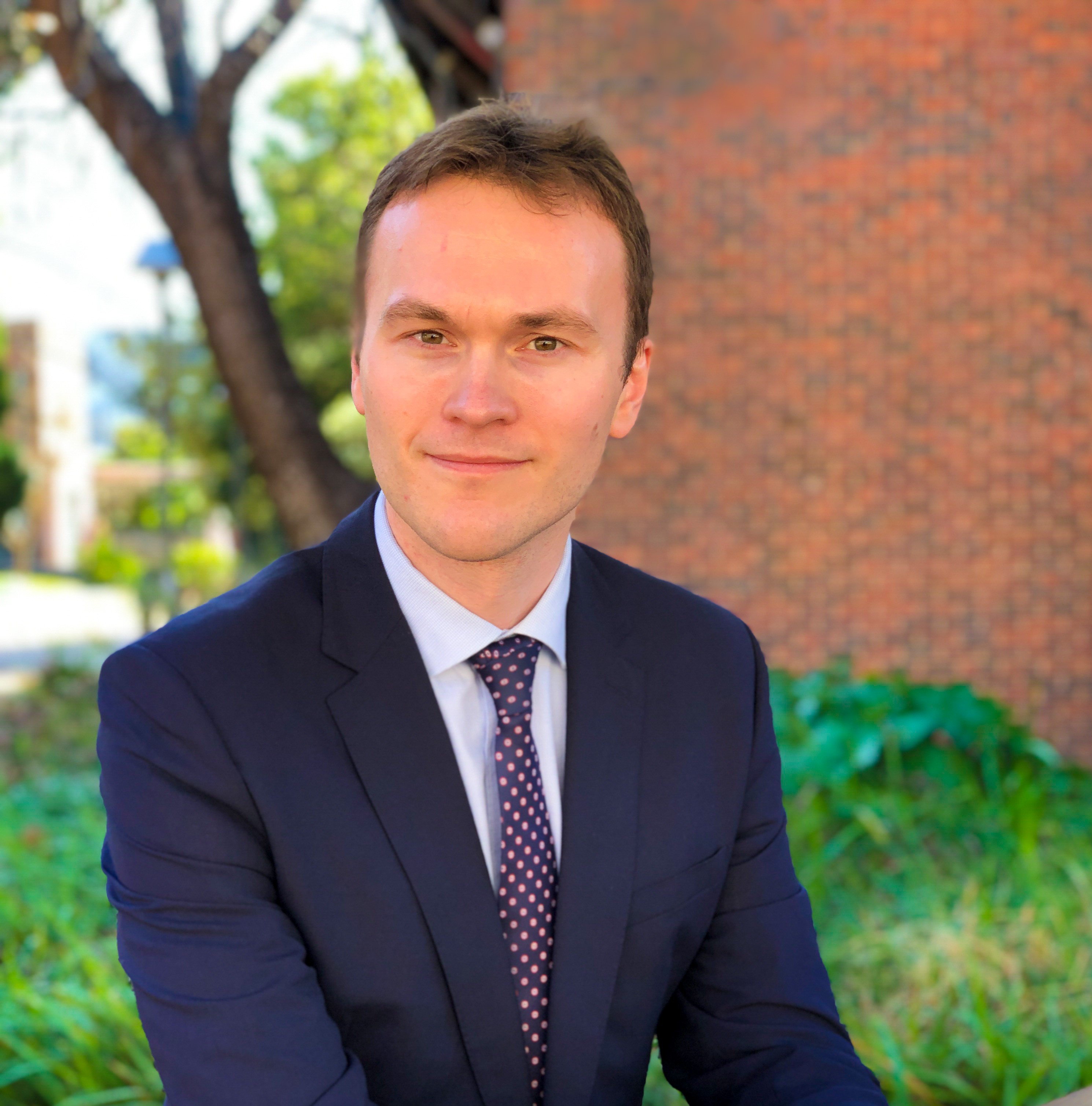 A/Professor Richard Norman is a Health Economist with ongoing interest in the economic evaluation of healthcare, the measurement and valuation of quality of life, discrete choice experiments and econometric analysis of large panel datasets. He holds an BA(Hons) in Philosophy and Economics and an MSc in Health Economics, both from the University of York in the UK, and a PhD from the University of Technology Sydney. He held an NHMRC Early Career Research Fellowship to explore patterns and preferences around quality of life. He is a Chief Investigator on projects currently funded by the NHMRC and the ARC. He is an associate editor of Value in Health, and is a permanent member of the Economics Sub-Committee of the Pharmaceutical Benefits Advisory Committee (PBAC).
A/Professor Richard Norman is a Health Economist with ongoing interest in the economic evaluation of healthcare, the measurement and valuation of quality of life, discrete choice experiments and econometric analysis of large panel datasets. He holds an BA(Hons) in Philosophy and Economics and an MSc in Health Economics, both from the University of York in the UK, and a PhD from the University of Technology Sydney. He held an NHMRC Early Career Research Fellowship to explore patterns and preferences around quality of life. He is a Chief Investigator on projects currently funded by the NHMRC and the ARC. He is an associate editor of Value in Health, and is a permanent member of the Economics Sub-Committee of the Pharmaceutical Benefits Advisory Committee (PBAC).
Melanie Bailey
 With a background as a Veterinarian, Dr Melanie Bailey recently completed a Master of Pharmacy at Griffith University. Currently employed as a preregistered Community Pharmacist, she has several years’ experience in the community sector, and completed her Master’s dissertation on the experiences of community pharmacists with medicine handover at transitions of care. She is a PhD candidate with The University of Queensland and aims to continue a career in research involving information transfer between health care settings in transitions of care.
With a background as a Veterinarian, Dr Melanie Bailey recently completed a Master of Pharmacy at Griffith University. Currently employed as a preregistered Community Pharmacist, she has several years’ experience in the community sector, and completed her Master’s dissertation on the experiences of community pharmacists with medicine handover at transitions of care. She is a PhD candidate with The University of Queensland and aims to continue a career in research involving information transfer between health care settings in transitions of care.
Leslie Oldfield
Leslie is an experienced project and program manager and a SOCRA Certified Clinical Research Professional (CCRP). She earned a Master’s degree in Biomedical Physics from the University of Toronto, where her research focused on hereditary cancer genetics. In addition to supporting OPTMED-D, Leslie is pursuing her Doctor of Medicine degree at Griffith University.
This study is funded by the Medical Research Future Fund.
Community pharmacy resources
Training Resources
MedAdvisor Resources
- MedAdvisor booking system (PDF, 448 KB)
- Secure messaging (PDF, 0.9 MB)
- Hospital MedsCheck (PDF, 1.9 MB)
- HealthEngine booking (PDF, 4 MB)
Study-Specific Resources
GP resources
CPD: Reviewing Performance
If you plan claim reviewing performance CPD activity, some suggestions on reflection (provided to OPTMED-D by RACGP) include:
- Describe the learning experience and how it relates to your scope of practice and/or Professional Development Plan.
- What did you learn from this experience?
- What will you do differently? What changes will you implement in your practise or practice as a result of this learning?
Practice refers to any role in which you are currently employed, e.g., your regular clinical practice, university teaching, research studies, or locum work.
You can review some examples: secure communications (PDF, 762.3 KB)
Contact us
If you are interested in connecting with the research team, or getting more information about the study, please contact us below.



